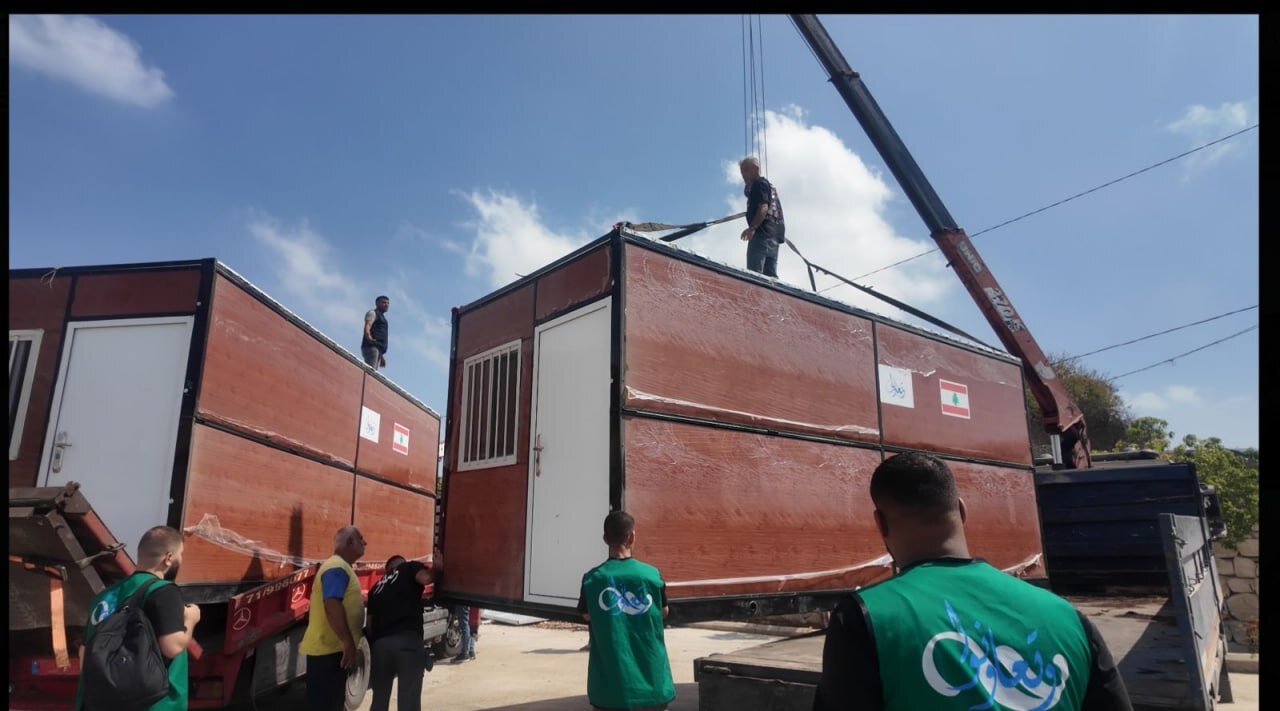Shutdown of “Whish Money” accounts is another phase of financial blockade on Lebanon

BEIRUT—Lebanon has been witnessing an escalating financial blockade for weeks after Whish Money (a local money transfer company) closed the accounts of associations and activists supporting reconstruction projects.
While at first glance, the move appeared to be technical or banking-related, it quickly became clear that it was part of a broader context, part of a system of economic and security restrictions aimed at preventing any civil or local efforts to restore life to the areas devastated in the Israeli raids on Lebanon in September-October 2024 and are still continuing, though with a lesser degree.
Since the signing of the ceasefire agreement last year, the southern regions have been transformed into a scene of massive civil society efforts led by villagers and local associations to compensate for the lack of state and international aid.
Humble but effective initiatives have emerged, relying on domestic donations and remittances from expatriates, to provide shelter, education, and basic needs for families who lost their homes and livelihoods.
These volunteer initiatives, however, quickly faced a series of organized obstacles, beginning with the assassination of engineers and threats against activists participating in reconstruction efforts, and finally ending with the cutting off of community funding through local financial platforms.
The closure of the Whish Money accounts was not an isolated incident; rather, it coincided with a series of Western and American measures and pressures on Lebanon aimed at imposing a blockade on the resistance environment and preventing the flow of funds to border areas.
The account of Hussein Saleh, a member of the Ramia Municipal Council member, was closed based on Circular No. 170 issued by the Banque du Liban, which raised questions about the nature of the relationship between internal banking decisions and external instructions dictated by international financial institutions.
It later emerged that dozens of other accounts belonging to relief organizations and local associations were closed, sparking a wave of anger in southern circles, who viewed these steps as a new form of collective punishment.
Wa Ta’awano Cooperative expressed regret over the closure of its donation account, saying that it had submitted all the legal documents required to reactivate it, but the company insisted on deactivating it without clear justification.
The volunteer association—which played a pivotal role in restoring damaged homes and establishing temporary education centers—considered this measure part of “a series of practices aimed at disrupting reconstruction efforts and supporting residents”.
The association said the move signifies a dangerous alignment by a Lebanese company with international and Israeli policies that aim to “suffocate the south economically and humanely.”
In practice, this decision led to a near-total paralysis of civil society funding, as associations relied on quick transfers via Whish Money as an alternative to the faltering banking system.
With the closure of these financial channels, donors find themselves unable to deliver aid, while the associations’ ability to implement their vital projects declines.
This once again empty the southern villages of their residents, as residents are unable to rebuild their homes or secure the most basic necessities of daily life.
Legally, most observers agree that what is happening goes beyond technical or legal issues.
Closing accounts is merely an additional pressure tool in a broader context of the economic war waged by external powers against Lebanon, targeting specific communities seeking to withstand the ongoing U.S.–led Israeli aggression.
While the military attacks have been limited, the financial war continues in more complex and quieter forms, using Lebanese economic and banking tools to achieve external political objectives.
However, the Lebanese experience has demonstrated that civil society alternatives are capable of adapting, as Wa Ta’awano Cooperative did by announcing the opening of a new account in Qard al-Hassan to continue receiving contributions.
This civil steadfastness, despite intense pressure, reflects the steadfast will of the people of the south to confront the blockade in all its forms. They are adamant in their will to rebuild what has been destroyed despite banking restrictions.
It is clear that closing accounts is merely a new chapter in the policy of prohibition and blockade, that the goal of which is to prevent the south from being rebuilt except on foreign terms.
Nevertheless, experience confirms that the will of the people, when combined with civil solidarity, is capable of breaking any siege, whether financial or military.
Leave a Comment